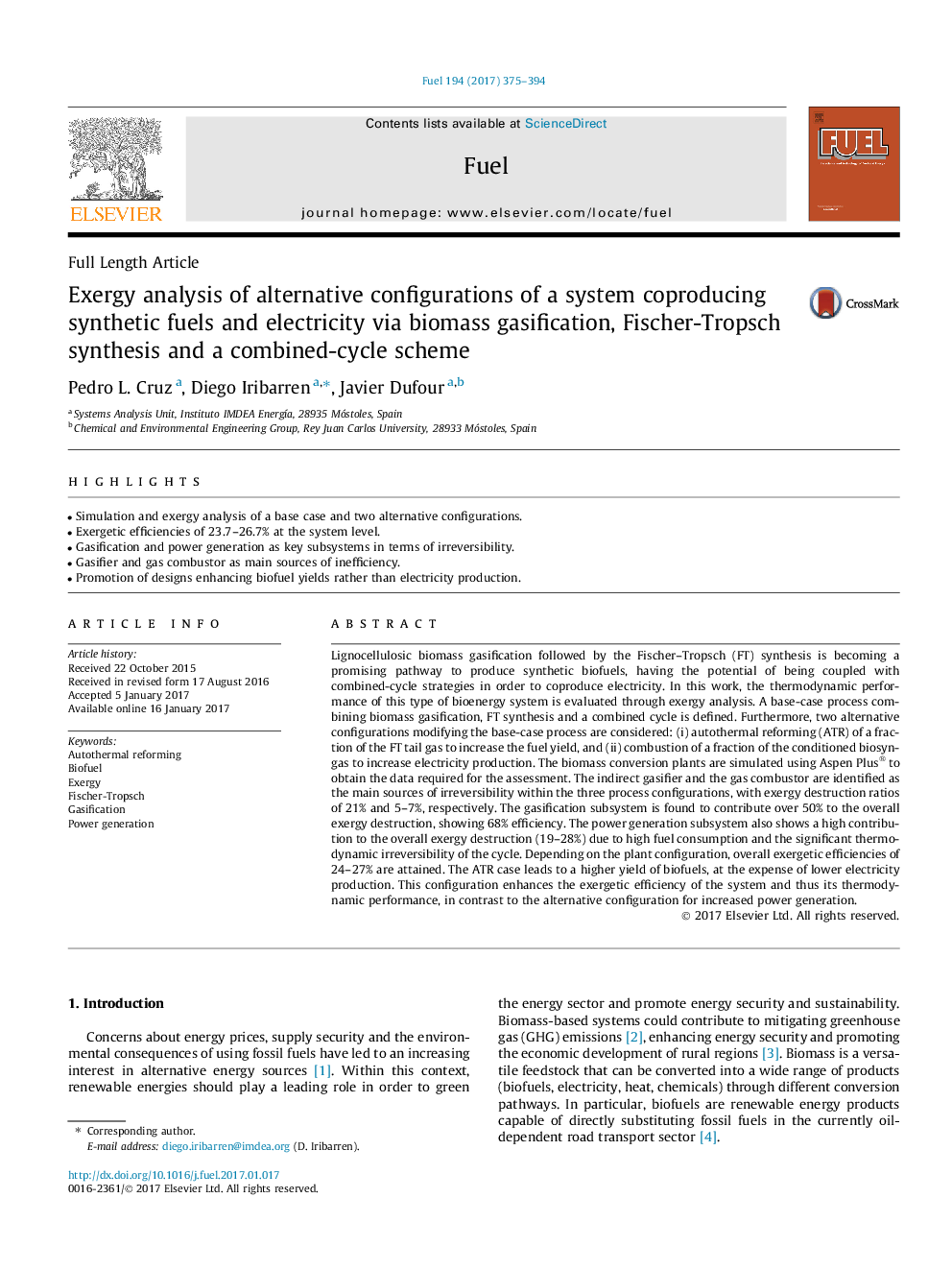| کد مقاله | کد نشریه | سال انتشار | مقاله انگلیسی | نسخه تمام متن |
|---|---|---|---|---|
| 6475501 | 1424970 | 2017 | 20 صفحه PDF | دانلود رایگان |
- Simulation and exergy analysis of a base case and two alternative configurations.
- Exergetic efficiencies of 23.7-26.7% at the system level.
- Gasification and power generation as key subsystems in terms of irreversibility.
- Gasifier and gas combustor as main sources of inefficiency.
- Promotion of designs enhancing biofuel yields rather than electricity production.
Lignocellulosic biomass gasification followed by the Fischer-Tropsch (FT) synthesis is becoming a promising pathway to produce synthetic biofuels, having the potential of being coupled with combined-cycle strategies in order to coproduce electricity. In this work, the thermodynamic performance of this type of bioenergy system is evaluated through exergy analysis. A base-case process combining biomass gasification, FT synthesis and a combined cycle is defined. Furthermore, two alternative configurations modifying the base-case process are considered: (i) autothermal reforming (ATR) of a fraction of the FT tail gas to increase the fuel yield, and (ii) combustion of a fraction of the conditioned biosyngas to increase electricity production. The biomass conversion plants are simulated using Aspen Plus® to obtain the data required for the assessment. The indirect gasifier and the gas combustor are identified as the main sources of irreversibility within the three process configurations, with exergy destruction ratios of 21% and 5-7%, respectively. The gasification subsystem is found to contribute over 50% to the overall exergy destruction, showing 68% efficiency. The power generation subsystem also shows a high contribution to the overall exergy destruction (19-28%) due to high fuel consumption and the significant thermodynamic irreversibility of the cycle. Depending on the plant configuration, overall exergetic efficiencies of 24-27% are attained. The ATR case leads to a higher yield of biofuels, at the expense of lower electricity production. This configuration enhances the exergetic efficiency of the system and thus its thermodynamic performance, in contrast to the alternative configuration for increased power generation.
Journal: Fuel - Volume 194, 15 April 2017, Pages 375-394
